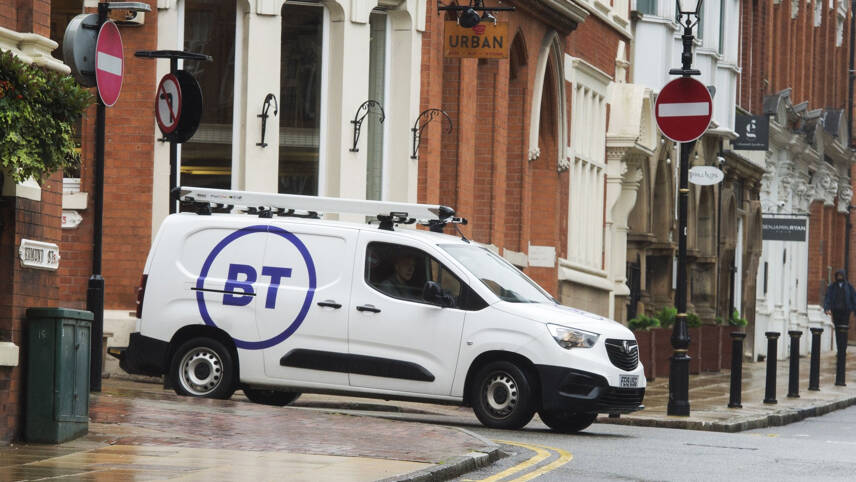Register for free and continue reading
Join our growing army of changemakers and get unlimited access to our premium content

Image: BT Group
That is according to The Climate Group, which has convened 128 businesses in a pledge to accelerate fleet electrification through its EV100 initiative. The likes of Leaseplan, Deloitte Ikea, Unilever and AstraZeneca participate in the initiative.
Collectively, The Climate Group confirmed today (4 April), these businesses have switched more than 630,000 cars and vans to electric, with the changes impacting fleets in 71 nations. They have further committed to electrifying a total of 5.45 million vehicles by 2030.
EV adoption among EV100 members has proven to be pronounced in India, where the businesses collectively operate more than 19,000 EVs and have plans to grow this number to 390,000 by the end of the decade.
The largest India-based EV adopters are e-commerce giant Flipkart and food delivery platform Zomato.
UK-based EV100 members are also leading in terms of vehicles deployed and pledges made. They have collectively deployed some 23,000 EVs to date with pledges to add more than 93,000 new ones this decade.
EV100 members in the UK include Sky, Centrica, Mitie, OVO Energy and BT Group.
The Climate Group has stated that a large number of British firms have felt confident adopting EVs due to “political leadership”.
While the organisation expressed disappointment that Prime Minister Rishi Sunak opted to delay the ban on new petrol and diesel car and van sales from 2030 to 2035, it foresees minimal impacts on corporate EV adoption due to the continuation of the Zero-Emission Vehicle (ZEV) mandate, which will require automakers to electrify an ever-increasing share of their portfolios.
The Climate Group is advocating for other markets to set clear phase-out dates for petrol and diesel vehicles, supported by ZEV mandates.
CO2 standards could also shift the market. The US recently introduced a new rule calling for a 56% reduction in fleetwide average CO2 emissions by 2032. Meeting this goal will require EVs to account for at least 35% of new car sales, up from just under 8% last year.
“We’re seeing ambition rapidly translate into action in leading countries where the right policy context has been created, but companies still face challenges in less advanced markets where EVs are difficult to obtain and charging infrastructure is lacking,” said The Climate Group’s director of transport Sandra Rolling.
The Group is also advocating for governments to work more closely with automakers to diversify the kinds of EVs available and reduce their upfront costs.
Charging infrastructure
EV100 members have collectively installed more than 35,000 EV chargers to date, including some 5,000 over the past 12 months. The Climate Group tracked a 34% year-on-year increase in the number of locations with charging installed.
Member businesses have collectively installed more than half of the charging units they intend to be operating by 2030.
But while installation has proven relatively simple in Europe, Asia and the Middle East, this remains a major challenge in Latin America (only 14 sites with installed chargers) and Oceania (only 35 sites with installed chargers). Both of these markets also lack public charging infrastructure, which can unlock corporate EV adoption.


Please login or Register to leave a comment.